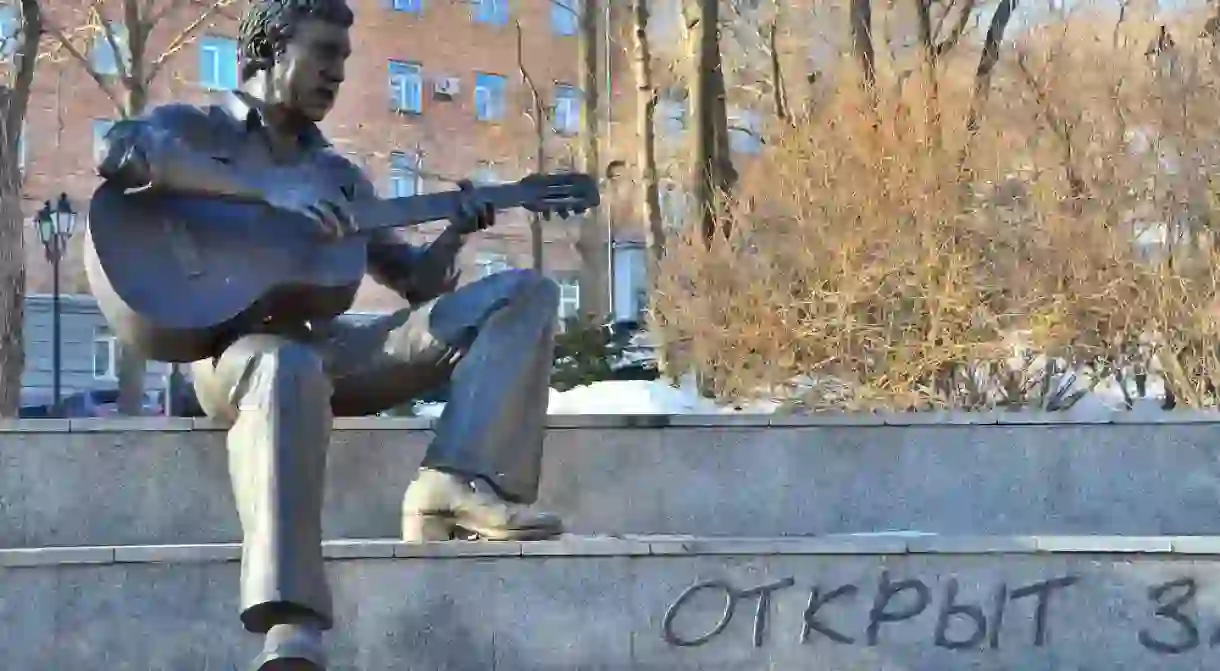Why Vladimir Vysotsky Is 'the Voice and Heart of Russia'

Vladimir Vysotsky earned himself the accolade of being ‘the voice and the heart of a nation’ before drug and alcohol addictions cut his life short in 1980. A popular poet and singer-songwriter, his words and music were the eloquent voice of dissidence, which continue to resonate with the Russian people today.
Before writing songs and poetry, Vysotsky started off as an actor. Born in Moscow in 1938, he graduated from the Moscow Art Theatre school in 1960 and secured starring roles in shows produced by the Moscow Theatre of Drama and Comedy. The spotlight shone on his talent, not to mention his ruggedly handsome looks and gravelly voice. As a result, he quickly shot to fame and began to grace the screen as well as the stage.
During this time, he started to pen songs and amassed a prolific catalogue of music, eventually writing over 800 songs by the end of his career. Although he would reject categorisation, Vysotsky was often referred to as a bard – a style of singer-songwriter particular to Russia that incorporated the nation’s literary craftsmanship.
In his signature guttural growl, he began performing musical narratives that reflected the hardships the Soviet people endured in the aftermath of World War II. He sang songs from the perspective of criminals and misfits, and people who had been sent to the gulags. He then moved away from these stories and would write songs on love, heartache, addiction and the plight of the common man. Much of his work would focus on WWII as a profound experience that was inflicted on the Soviet people and one that changed society.

His poignant songs and poems skirted around government censorship to discuss the realities of the masses with clever wordplay and metaphor. It was only in mid-70s when the government loosened their control on Vysotsky’s music. Prior, the State refused to distribute and publish his albums, as well as restricting his presence across media. Despite this, he grew a loyal fanbase through underground gigs in factories and clubs and distributed his work on the black market. His gigs were taped and copied via portable cassette recorders. The tapes travelled across the nation from hand to hand, where his music and lyrics resonated with Soviets in every corner of the union.
After a short, vice-fueled life, he died of a heart attack at just 42 years old. The excessive, boozy life of celebrity had wrecked havoc on his body and he died while Moscow was hosting the Olympics. Thousands of people turned away from the sporting competition to pay their respects. They held a spontaneous memorial service to the singer on the steps of the theatre that started his career and then farewelled the national hero again at his funeral.

Since his death, bronzed tributes to Vysotsky have been erected in squares and parks in most cities. At one point he had his own museum in Moscow. His gravesite became a point of pilgrimage after his death and continues to be covered in fresh flowers. He is the namesake of Yekaterinburg’s tallest skyscraper – one of the tallest buildings in Russia. And every year, tribute concerts are held up and down the country where Russia’s top performers come together to sing his songs and celebrate an artist whose music embodied the soul of a nation.













